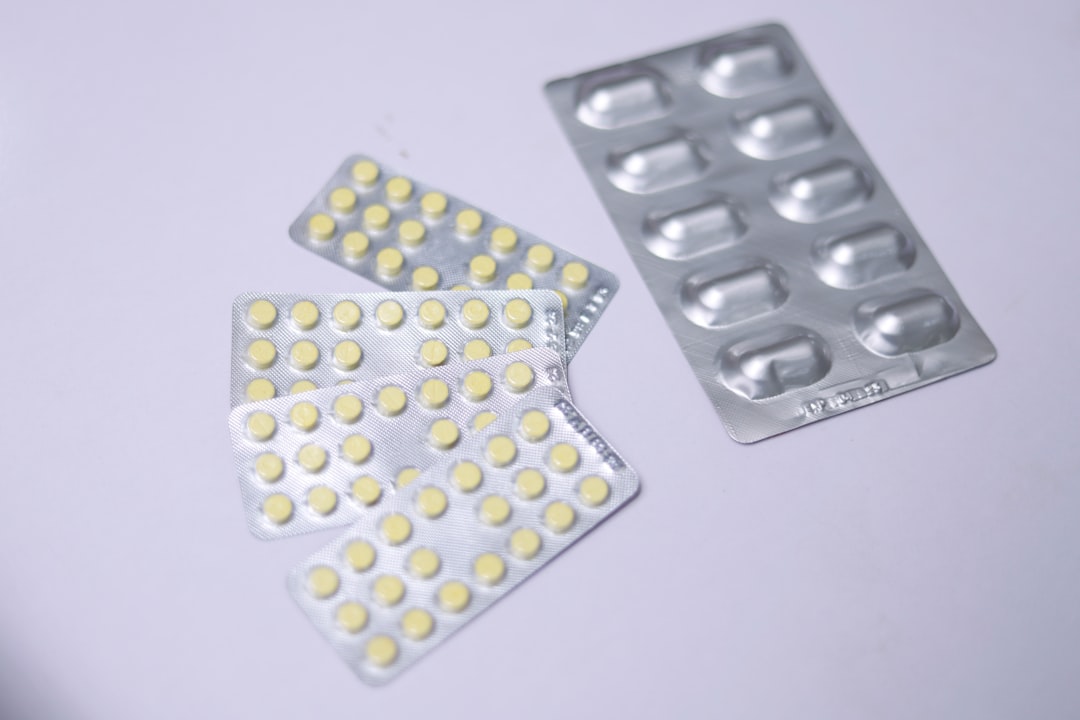
Hospital DTM vs Community Pharmacy: Big Difference
Drug Therapy Management (DTM) from hospital systems feels like... well, like dealing with a hospital. Institutional, standardized, one-size-fits-all protocols. Community pharmacy DTM? Personalized, flexible, actually takes time to understand YOUR specific situation. The approach is completely different.
Community Pharmacy DTM vs Hospital-Based Programs
Drug therapy management through community pharmacies offers substantially superior personalized care compared to hospital-based programs that often focus primarily on acute care episodes rather than comprehensive long-term medication optimization. Community pharmacists develop ongoing therapeutic relationships with patients that enable continuous medication monitoring, lifestyle integration, and proactive intervention that hospital-based programs cannot match due to their episodic care model and institutional constraints.
Hospital-based DTM programs typically address immediate medication concerns during short-term stays or clinic visits, operating within institutional protocols that prioritize standardized approaches over individualized medication management. These programs often lack the continuity and personal familiarity that enable optimal therapeutic outcomes, as patients interact with different pharmacists across multiple encounters without developing the ongoing relationships that support comprehensive medication optimization.
Community pharmacy drug therapy management provides continuous, personalized medication optimization that adapts to patients' changing health needs, lifestyle factors, and therapeutic goals over time. This ongoing relationship enables pharmacists to identify patterns, recognize subtle changes in medication effectiveness, and make proactive adjustments that prevent adverse events and optimize therapeutic outcomes in ways that episodic hospital-based programs cannot achieve.
The integration of community pharmacy DTM with patients' daily lives creates opportunities for medication management that extends beyond simple compliance monitoring to encompass comprehensive lifestyle factors, medication timing optimization, food and drug interactions, and the complex interplay between multiple medications that affects overall therapeutic success. This holistic approach represents a fundamental advantage over institutional programs focused primarily on acute care interventions.
Perhaps most importantly, community pharmacy DTM can provide medication management that coordinates seamlessly with multiple healthcare providers while maintaining patient-centered focus that helps all therapeutic interventions support individual patient goals rather than institutional protocols. This patient-centered approach creates better therapeutic outcomes and higher patient satisfaction compared to hospital-based programs operating under institutional constraints.
Why Community Pharmacy DTM Delivers Better Outcomes
The structural advantages of community pharmacy drug therapy management create measurably better patient outcomes through comprehensive, ongoing medication oversight that hospital-based programs cannot provide due to their episodic care model and institutional limitations. These advantages stem from fundamental differences in care philosophy, patient interaction patterns, and therapeutic objectives that favor community-based approaches.
Community Pharmacy DTM Advantages:
- • Ongoing patient relationships enabling deep understanding of individual needs
- • Complete medication reviews including OTC and supplement interactions
- • Real-world adherence monitoring with proactive intervention strategies
- • Cost optimization through generic alternatives and insurance coordination
- • Convenient access for regular consultations and medication adjustments
- • Integration with daily lifestyle and routine medication management
- • Coordination with multiple prescribing physicians across specialties
- • Personalized education and ongoing support for chronic conditions
- • Proactive identification and prevention of medication-related problems
- • Flexible scheduling and accessible consultation availability
Community pharmacists interact with patients regularly through prescription refills, creating natural opportunities for ongoing drug therapy management that hospital programs cannot replicate due to their episodic encounter model. These frequent interactions enable early identification of medication-related problems, ongoing assessment of therapeutic effectiveness, and continuous adjustment of medication regimens based on patient response and changing health conditions.
The medication adherence monitoring capabilities of community pharmacy DTM extend beyond simple compliance checking to encompass comprehensive understanding of why adherence challenges occur and how to address them effectively. Community pharmacists can identify patterns in medication pickup timing, recognize barriers to adherence, and implement personalized solutions that address root causes rather than simply documenting non-compliance.
Cost optimization represents another significant advantage of community pharmacy DTM, as pharmacists can work continuously with patients and insurance plans to identify cost-effective alternatives, coordinate prior authorizations, and implement strategies that maintain therapeutic effectiveness while reducing financial burden. This ongoing cost management is particularly valuable for patients with chronic conditions requiring long-term medication therapy.
The coordination capabilities of community pharmacy DTM enable comprehensive medication management across multiple prescribing physicians, specialists, and healthcare settings. Community pharmacists can identify potential interactions, redundancies, and gaps in medication therapy that might be overlooked when care is fragmented across multiple institutional settings without central coordination.
Complete Medication Therapy Management Services

Community pharmacy drug therapy management encompasses comprehensive medication reviews, systematic drug interaction screening, adherence counseling and support, and ongoing coordination with prescribing physicians to optimize therapeutic outcomes while minimizing adverse effects and medication-related complications. This comprehensive approach addresses all aspects of medication therapy rather than focusing on isolated problems or acute interventions.
The medication review process in community pharmacy DTM involves systematic evaluation of all medications, including prescriptions, over-the-counter products, supplements, and herbal preparations, to identify potential interactions, duplications, inappropriate dosing, and opportunities for therapeutic optimization. This comprehensive approach helps that all substances affecting patient health are considered in medication management decisions.
Complete DTM Services Include:
- • Systematic medication reviews with comprehensive interaction screening
- • Drug interaction prevention and management protocols
- • Adherence monitoring with personalized improvement strategies
- • Cost-effective therapy recommendations and insurance coordination
- • Physician coordination for therapy adjustments and optimizations
- • Patient education and lifestyle integration support
- • Chronic disease management and medication synchronization
- • Side effect monitoring and management strategies
- • Medication timing optimization for maximum effectiveness
- • Emergency medication management and problem resolution
These comprehensive services result in measurably improved medication adherence, significant reduction in adverse drug events, better therapeutic outcomes, and substantial healthcare cost savings compared to fragmented approaches that address medication problems reactively rather than proactively. The integration of all these services through ongoing patient relationships creates synergistic benefits that exceed the sum of individual interventions.
The patient education component of community pharmacy DTM involves ongoing support that helps patients understand their medications, recognize potential problems, and participate actively in their medication management. This educational approach empowers patients to become partners in their healthcare while providing the knowledge needed for optimal medication use and problem prevention.
Quality improvement through community pharmacy DTM includes systematic tracking of patient outcomes, medication-related problems, and therapeutic effectiveness that enables continuous refinement of medication management approaches. This quality focus helps that DTM services evolve to meet changing patient needs and incorporate new evidence-based practices that improve therapeutic outcomes.
The accessibility of community pharmacy DTM services helps that patients can receive medication management support when they need it most, whether for routine monitoring, urgent problems, or complex medication changes. This accessibility represents a fundamental advantage over hospital-based programs that operate within limited clinic hours and appointment scheduling constraints.
The Clinical Impact of Community-Based DTM
Research demonstrates that community pharmacy drug therapy management programs achieve superior clinical outcomes compared to hospital-based alternatives through their ability to provide continuous, comprehensive medication oversight that prevents problems before they require acute interventions. These clinical benefits translate into improved quality of life for patients and reduced healthcare costs across the entire healthcare system.
The chronic disease management capabilities of community pharmacy DTM create particular value for patients with conditions such as diabetes, hypertension, heart disease, and other conditions requiring ongoing medication optimization. Community pharmacists can monitor medication effectiveness, identify early signs of therapeutic problems, and coordinate with prescribing physicians to make proactive adjustments that prevent complications and hospitalizations.
Medication adherence improvement through community pharmacy DTM addresses one of the most significant challenges in healthcare by identifying and addressing the root causes of non-adherence rather than simply documenting compliance problems. This proactive approach to adherence support creates sustainable behavior changes that improve therapeutic outcomes and reduce healthcare costs over time.
The integration of community pharmacy DTM with other healthcare services creates a comprehensive care model that helps medication therapy supports overall health goals while coordinating effectively with other treatments and interventions. This integrated approach prevents the medication-related problems that often occur when healthcare delivery is fragmented across multiple providers and settings.
Technology Integration in Modern DTM Practice
Modern community pharmacy drug therapy management leverages advanced technology systems that enable comprehensive medication monitoring, early problem detection, and sophisticated coordination with healthcare providers that enhances the traditional benefits of community pharmacy care. These technological capabilities create new opportunities for proactive medication management that prevent problems and optimize therapeutic outcomes.
Electronic health record integration enables community pharmacies to access comprehensive patient information that supports more sophisticated medication management decisions, while medication management software provides tools for systematic monitoring, interaction screening, and outcome tracking that enhance the quality and consistency of DTM services.
Patient communication technologies enable ongoing support and monitoring between face-to-face encounters, creating opportunities for continuous medication management that extends beyond traditional clinic-based models. These communication tools enable proactive intervention when problems develop and ongoing support that improves medication adherence and therapeutic outcomes.
AV Chemist's Personalized Drug Therapy Management
AV Chemist in Glendale, Queens, provides comprehensive drug therapy management services that demonstrate how community pharmacy DTM can surpass hospital-based programs through personalized, ongoing medication optimization delivered by experienced pharmacists who understand individual patient needs and therapeutic goals. Their DTM program combines advanced pharmaceutical expertise with the personal attention and continuity that create optimal therapeutic outcomes.
The drug therapy management process at AV Chemist involves comprehensive medication reviews that evaluate all aspects of patient medication therapy, including prescription medications, over-the-counter products, supplements, and lifestyle factors that affect therapeutic outcomes. This thorough approach helps that all elements affecting medication effectiveness are considered in developing personalized medication management plans.
Their ongoing medication monitoring includes regular assessment of therapeutic effectiveness, side effect monitoring, adherence support, and proactive identification of medication-related problems before they become serious health issues. This continuous oversight creates opportunities for medication optimization that prevent complications and improve quality of life for patients with complex medication regimens.
The coordination services provided by AV Chemist include direct communication with prescribing physicians, insurance advocacy, and integration with other healthcare providers to ensure that medication therapy supports overall treatment goals. This coordination capability helps that all healthcare providers have current information about medication therapy and that therapeutic decisions are made collaboratively to optimize patient outcomes.
By combining comprehensive DTM services with convenient delivery throughout NYC and New Jersey, AV Chemist helps that patients receive continuous medication management support without the access barriers and scheduling limitations that characterize hospital-based programs. This combination of expertise and accessibility represents the optimal approach to modern medication therapy management.
The quality assurance protocols employed by AV Chemist for drug therapy management include systematic outcome tracking, continuous quality improvement, and evidence-based practice integration that helps DTM services remain current with best practices and deliver measurable improvements in patient health outcomes and medication-related quality of life.
Perhaps most importantly, AV Chemist's drug therapy management services maintain focus on individual patient goals and preferences while providing the clinical expertise and ongoing support needed for optimal medication therapy outcomes. This patient-centered approach helps that medication management serves each patient's unique needs rather than conforming to institutional protocols that may not address individual circumstances effectively.